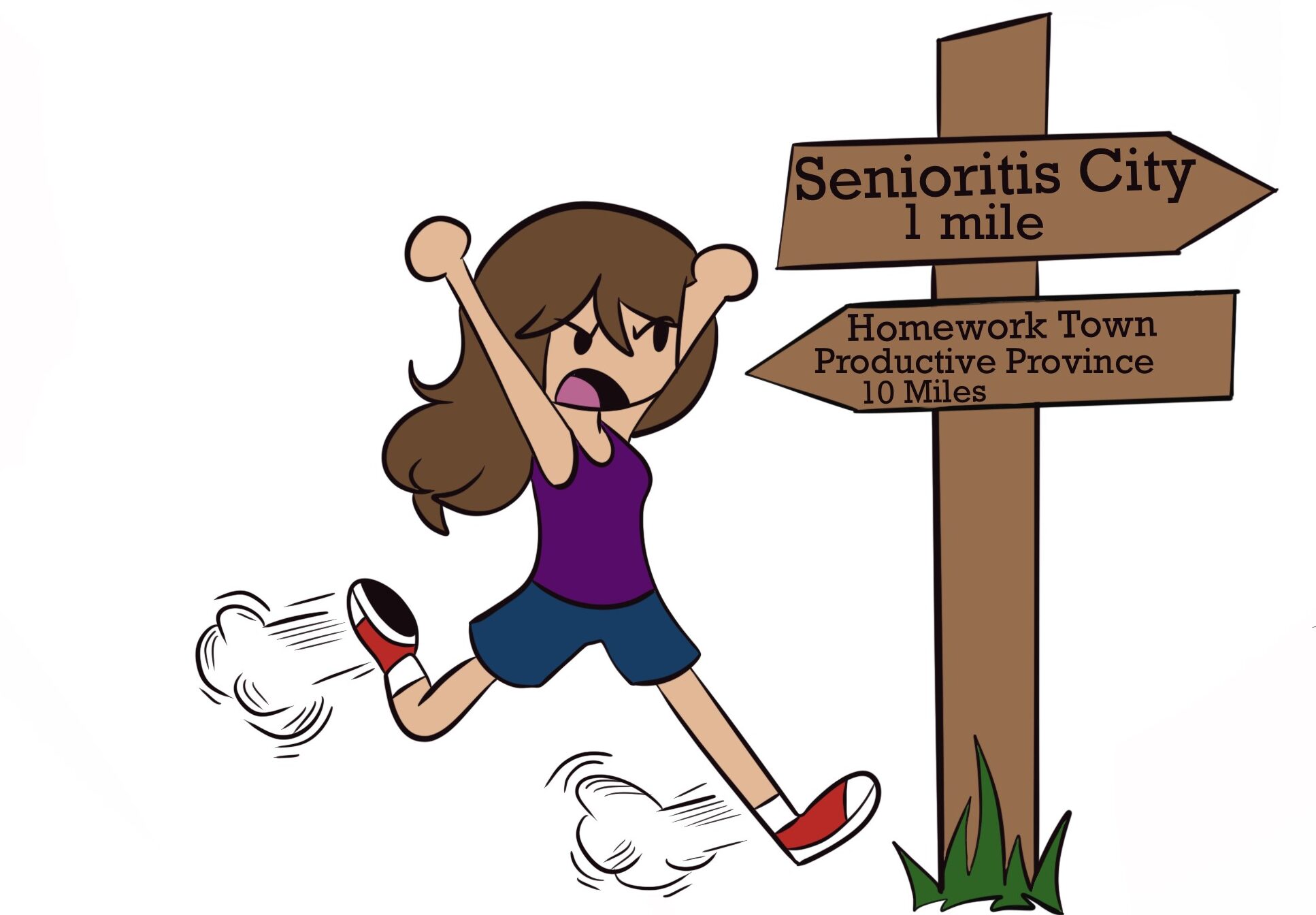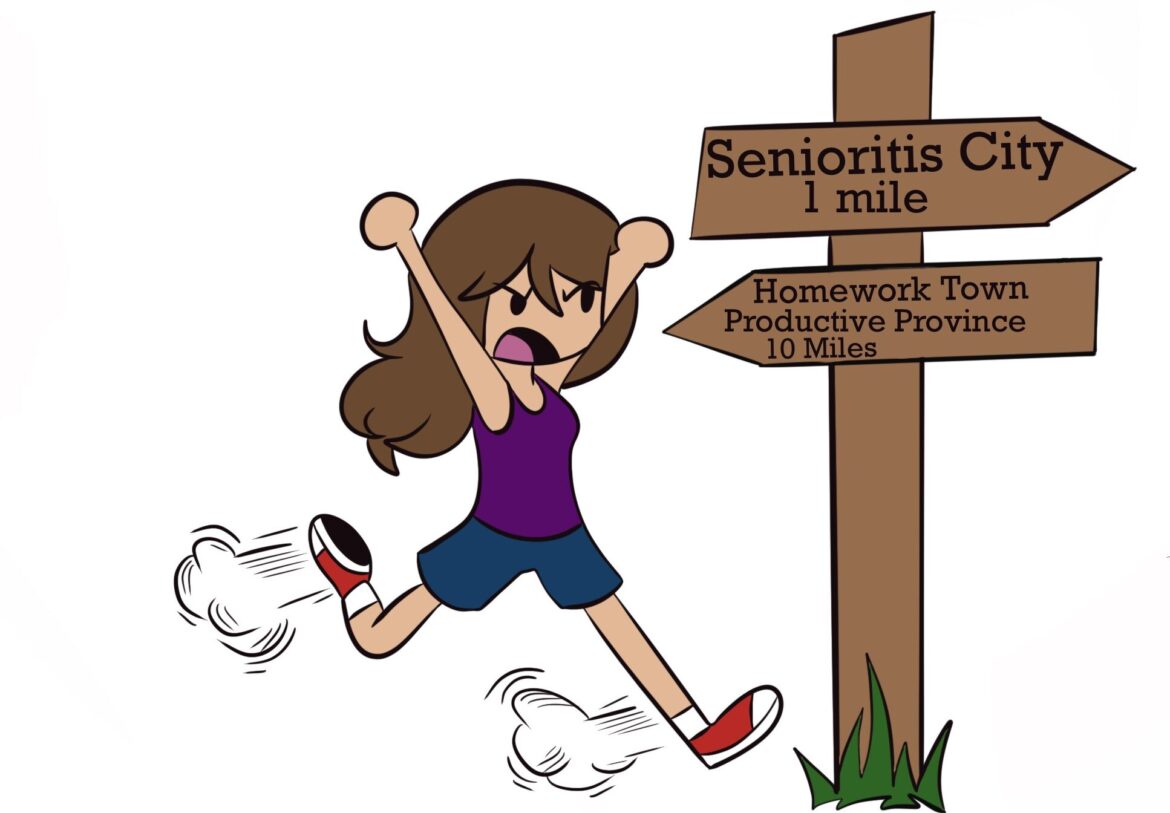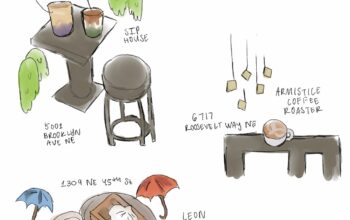
This March marked a six months since the return to in-person school at Roosevelt. At the same time, quarantine has left its stain on in-person education, as many students and teachers are reporting higher-than-usual levels of senioritis — a condition once reserved for the senior class only.
As defined by the Merriam-Webster Dictionary, senioritis is “an ebbing of motivation and effort by school seniors as evidenced by tardiness, absences, and lower grades.” While disinterest among seniors, especially during the second semester, is expected, this year it appears to be spreading to the other grades.
Likely due to our return from the pandemic, a severe lack of motivation has seemed to infect classes this year, not spreading but rather being front and center at the start of the year.
One role quarantine could have played in this influx of senioritis has been dubbed ‘pandemic burnout,’ or a COVID-related bout of burnout and feelings of discouragement. Burnout is primarily caused by stress, which many people experienced during quarantine.
Another reason may be the more relaxed attitude toward school in general from students. More flexible deadlines and work ethics were initially necessary to help students and teachers maintain positive mental health, and some argue they still are. After two years of conditioning, returning to our lives before COVID has been more difficult than expected.
A TRN survey gauged the level of Roosevelt burnout, and a junior shares, “I think that online [learning] really gave a sense of freedom that most of us have never felt, allowing for new patterns to emerge… It felt more casual and being able to not have your camera [on] in most classes really allowed for less boredom and more personal interests.”
Other survey respondents noted their current well-being: “Zero motivation + zero sleep = falling behind and stress.” Another respondent shares a similar sentiment, “Teachers are piling work but I don’t want to f—— do it all or else I have time for nothing. I don’t want my life just being f—— school.”
When asked about student solutions to senioritis, the dismal student responses continued: “I can’t,” and, “I hate school.”
A larger consequence of this motivation drought is the risk of failing grades. Many colleges are keeping a check on how students perform during the pandemic. Leeway is provided, but it’s better to be safe than sorry, as some colleges reserve the right to rescind admission if a senior’s performance falls after the college application season ends. This may prove especially tricky for seniors suffering from senioritis and pandemic burnout as their high school careers close out.
As students grapple with burnout while facing the college admissions process, many are left wondering how to regain their pre-pandemic footing. The International Wound Journal outlines the following solutions to address and even prevent burnout: taking care of your bodily needs (eating, drinking enough, sleeping enough, etc.), taking breaks from work to make sure you don’t become overwhelmed, staying as positive as possible and talking about personal problems, and avoiding negative coping mechanisms such as the use of illicit substances.
Though some of these suggestions are self-explanatory, others might be a bit confusing. As for taking breaks and staying positive, making your work more enjoyable can be key to getting it done. Additionally, don’t force positivity, and give yourself space to feel whatever you may need to, just don’t get wrapped up in it.
As for not indulging in negative habits, it’s easy to start spiraling. If you’re overwhelmed, the last thing you’d want to do is get involved in self-destructive habits like using illicit substances, which may actively derail you.
Lastly, though it may seem obvious, sleep is incredibly important. Many survey responses note feeling drained, anxious, and even sleep deprived. “It’s constant stress and anxiety about grades and going to school and it feels like I’m wasting my life,” says one survey respondent.
In the end, the best advice I can give is to go easy on yourself. Don’t beat yourself up because getting back to normal is a process, and won’t happen overnight. If you’re still struggling to get to that point, slowing down and working to center yourself is essential. When overwhelmed, take a breath and focus back onto your goals to keep moving forward.



